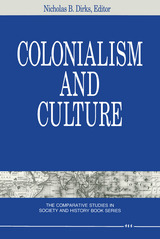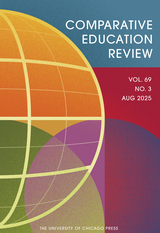5 books about Oostindie, Gert
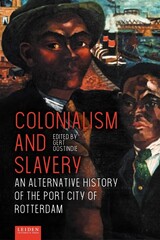
Colonialism and Slavery
An Alternative History of the Port City of Rotterdam
Gert Oostindie
Leiden University Press, 2021
Unlike most city histories, this book focuses exclusively on the city’s connections with colonialism and slavery. Rotterdam, the second-largest Dutch city, is one of Europe’s leading ports. Its maritime expansion was intrinsically linked to Dutch colonialism, including slave trading and colonial slavery in the Americas, Africa and Asia. This painful history sits uneasily with the city’s modern cosmopolitan image and its large population of ‘new Rotterdammers’ with colonial roots. The present volume provides a summary of the research that has documented this history, with chapters on the contribution of colonial trade to economic development; the city’s involvement in slavery; the role of the urban political elites; the impact on urban development and architecture; the ‘ethical impulse’; colonial art and ethnographic collections; colonial and postcolonial migration; and finally the resonance of this history in postcolonial Rotterdam.
[more]
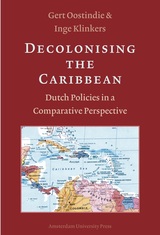
Decolonising the Caribbean
Dutch Policies in a Comparative Perspective
Gert Oostindie and Inge Klinkers
Amsterdam University Press, 2003
Much has been written on the post-war decolonisation in the Caribbean, but rarely from a truly comparative perspective, and seldom with serious attention to the former Dutch colonies of Surinam, the Netherlands Antilles and Aruba. This study bridges both gaps. In their analysis of Dutch decolonisation policies since the 1940s, the authors discuss not only political processes, but also development aid, the Dutch Caribbean exodus to the metropolis and cultural antagonisms. A balance is drawn both of the costs and benefits of independence in the Caribbean and of the outlines and results of the policies pursued in the non-sovereign Caribbean by France, the Netherlands, the United Kingdom and the United States.
[more]
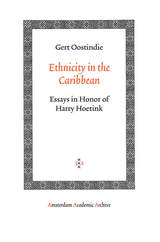
Ethnicity in the Caribbean
Essays in Honor of Harry Hoetink
Edited by Gert Oostindie
Amsterdam University Press, 2006
Race and biologized conceptions of ethnicity have been potent factors in the making of the Americas. They remain crucial, even if more ambiguously than before. This collection of essays addresses the workings of ethnicity in the Caribbean, a part of the Americas where, from the early days of empire through today’s post-colonial limbo, this phenomenon has arguably remained in the center of public society as well as private life. These analyses of race and nation-building, increasingly significant in today’s world, are widely pertinent to the study of current and international relations.
The ten prominent scholars contributing to this book focus on the significance of ethnicity for social structure and national identity in the Caribbean. Their essays span a period from the initial European colonization right through today’s paradoxical balance sheet of decolonization. They deal with the entire region as well as the significance of the diaspora and the continuing impact of metropolitan linkages. The topics addressed vary from the international repercussions of Haiti’s black revolution through the position of French Caribbean békés and the Barbadian ‘redlegs’ to race in revolutionary Cuba; from Puerto Rican dance etiquette through the Latin American and Caribbean identity essay to the discourse of Dominican nationhood; and from a musée imaginaire in Guyane through Jamaica’s post independence culture to the predicament of Dutch Caribbean decolonization. Taken together, these essays provide a rare and extraordinarily rich comparative perspective to the study of ethnicity as a crucial factor shaping both intimate relations and the public and even international dimension of Caribbean societies.
The ten prominent scholars contributing to this book focus on the significance of ethnicity for social structure and national identity in the Caribbean. Their essays span a period from the initial European colonization right through today’s paradoxical balance sheet of decolonization. They deal with the entire region as well as the significance of the diaspora and the continuing impact of metropolitan linkages. The topics addressed vary from the international repercussions of Haiti’s black revolution through the position of French Caribbean békés and the Barbadian ‘redlegs’ to race in revolutionary Cuba; from Puerto Rican dance etiquette through the Latin American and Caribbean identity essay to the discourse of Dominican nationhood; and from a musée imaginaire in Guyane through Jamaica’s post independence culture to the predicament of Dutch Caribbean decolonization. Taken together, these essays provide a rare and extraordinarily rich comparative perspective to the study of ethnicity as a crucial factor shaping both intimate relations and the public and even international dimension of Caribbean societies.
[more]
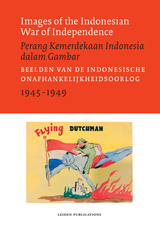
Images of the Indonesian War of Independence, 1945-1949/Perang Kemerdekaan Indonesia dalam Gambar
Sander van der Horst
Amsterdam University Press, 2022
Four years of protracted negotiations and bitter warfare passed between the declaration of Indonesian independence on 17 August, 1945, and the official transfer of sovereignty on 27 December, 1949. Whereas the newly proclaimed Republic of Indonesia rejected the colonial regime and hence any attempt at ‘recolonization’ by the Dutch after the Japanese occupation (1942-1945), the Dutch framed their return to the archipelago as a mission to restore ‘order and peace’. Images of the Indonesian War. Many of these materials, alongside photographs and oral history collections, ended up in the collections of the KITLV and eventually the Leiden University Libraries. This trilingual (English, Dutch and Indonesian) catalogue accompanies a digital exhibition of some fifty unique items. The selection made demonstrates the sharply contrasting perspectives on the legitimacy of the Republic and Dutch colonialism, and also offers first-hand testimonies of a bitter war with a huge imbalance of casualties.
[more]
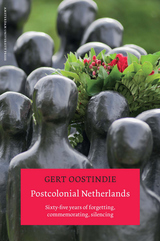
Postcolonial Netherlands
Sixty-Five Years of Forgetting, Commemorating, Silencing
Gert Oostindie
Amsterdam University Press, 2012
The Netherlands is home to one million citizens with roots in former Dutch colonies, such as Indonesia, Suriname, and the Antilles. Due to this influx of non-Western immigrants, a nationwide debate over multiculturalism has been waged over the past decade. Postcolonial Netherlands addresses themes of multicultural integration, such as state-sponsored financial gestures towards first-generation immigrants, and their subsequent results. Taking on a controversial thesis, Gert Oostindie claims that children of immigrants feel diminishing ties to their international origins and that for newer Dutch generations, multiculturalism has less and less importance.
[more]
READERS
Browse our collection.
PUBLISHERS
See BiblioVault's publisher services.
STUDENT SERVICES
Files for college accessibility offices.
UChicago Accessibility Resources
home | accessibility | search | about | contact us
BiblioVault ® 2001 - 2025
The University of Chicago Press



